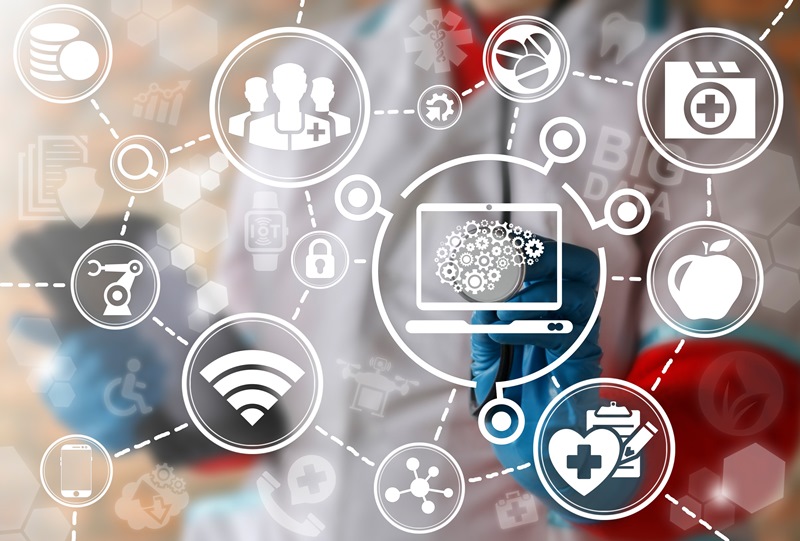The Health Innovation Network is passionate about the role of innovation in tackling health inequalities.
These disparities, which are deeply rooted in factors like employment, ethnicity, locality, gender, disability, and housing, continue to hinder equitable access to healthcare and impact life expectancy.
Digital solutions have the power to bridge gaps in health inequality.
We’re proud to be joined by 10 cutting-edge digital innovators at HETT North 2024, in Manchester on Wednesday 28 February.
Here’s how some of the Network-supported innovators, are making valuable contributions towards health equity:
Remote monitoring: A remote monitoring solution, patientMpower, is revolutionising access to care by reducing the need for in-person clinic visits. Amy Boulstridge explains: “By reducing the need for out-patient clinic visits but as much as 70%, use of the patientMpower remote monitoring solution has been shown to dramatically improve access to care.
“Reducing the burden associated with clinic attendance, such as travel costs, public transport challenges, reliance on caregivers, missed time at work or away from other responsibilities, plus symptom burden for those with advanced illness reduces health inequalities that exist with traditional models of care.”
Empowering communities through technology: SiSU Health UK is creating healthier communities through digital health stations and mobile apps. Rachael Rowe, Head of Marketing, said: “Getting a digital health check is as easy as buying a loaf of bread, with self-service SiSU Health Stations in places where people live their lives. We empower people to monitor and manage their health through access to their health data, recommendations and ongoing digital resources.”
Support for the unheard voice: Mobilise supports unpaid carers with their digital carer support platform, which aims to enhance resilience and combat loneliness among caregivers, ultimately improving health outcomes.
James Townsend, Co-Founder and CEO if Mobilise, said: “Caring for someone else can have a huge impact on our health and wellbeing. Public Health England research has shown there’s ‘mounting evidence that unpaid caring should be considered a social determinant of health’. That’s why Mobilise has been created by carers, for carers. Our digital carer support is designed to prevent poor health and wellbeing outcomes for those of us who look after someone else.
“In fact, 80% of our community say they’ve seen an improvement in their resilience. Also, 60% say they feel less alone. And by reaching hundreds of thousands of unpaid carers, and utilising technology, we’re making this difference at scale.
“Increased resilience and decreased loneliness mean better outcomes for our health and wellbeing. That in turn means we can continue to care and thrive.”
Tailored solutions for diverse needs: Holly Health is a personalised health coaching app for patients living with, or at risk of, long-term conditions. Grace Gimson, Co-Founder, said: “We run many programs to help reduce inequalities, through easy service accessibility, tailoring to unique individual needs, adapting to education and health confidence levels, exploring population health data insights.”
Find out more about how we work with innovators.

There is a wealth of HealthTech innovators poised to help solve some of the NHS’ greatest challenges, yet getting a product or new technology adopted at scale in the NHS is far from straightforward. In a recent ABHI member’s survey*, procurement was cited as one of the biggest barriers that innovators face, particularly those from [...]

Tellmi is a social enterprise innovation which aims to address the growing demand for mental health services and tackle health inequalities for young people. It is a digital peer support app available launched in 2017 by psychologist Suzi Godson PhD and engineer Kerstyn Comley PhD. Kersytn explains how Tellmi works. Tell us about the innovation. [...]

The NHS is facing record demand for services. According to The Health Foundation, the NHS waiting list for elective treatment in England has almost tripled in size over the last decade to 7.7 million. And latest figures show there were a record 2.35 million attendances at A&E across England in March this year. We know [...]







